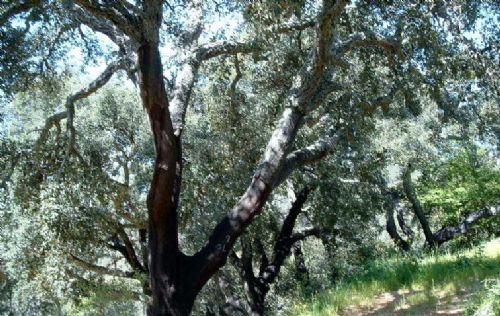
Forest Research, a part of the Forestry Commission in the UK, is taking part in international research to identify alternative tree species that could be planted in the future climate. Funded by the European Union, Project REINFFORCE is to carry out research trials of 30 tree species at 37 locations on the west Atlantic that range from the Azores in Portugal to the Isle of Mull in Scotland.
There are three trial sites in western Britain including Westonbirt, The National Arboretum in England, The Isle of Mull in Scotland and Crychan (near Llandovery) in Wales. Alongside the REINFFORCE trials, there are two Forest Research trials in eastern Britain, one at Crowthorne Forest in Berkshire, a part of Swinley Forest affected by forest fires in May 2011, and the other near Peebles in Scotland.
Forest Research, a part of the Forestry Commission and a world-leading centre of research into trees, forestry and climate change, is working alongside 11 other European partners. They are to identify species that are likely to be more resilient to pests, diseases and most likely to thrive in the warmer climates predicted as a result of climate change.
The impact of recurrent ice ages has left the British Isles with only a small number of native tree species, most of which are broadleaf. Oak, beech, ash and birch make up our native broadleaf forests and Scots pine, yew and juniper the native conifer forests. Of these Scots pine is the only native conifer which is used on a wide scale for timber production. So there is a need to identify a wider variety of coniferous species.
For centuries new tree species have been introduced for a variety of purposes, including the production of timber, so a portfolio of commercial forestry species has expanded today to include Sitka spruce, Douglas fir, larch, Corsican and lodgepole pines.
However, the last decade has seen an increase in the number of tree pests and diseases affecting these species. Diseases such as Dothistroma needle blight has damaged Corsican and lodegpole pines, Phytophthora ramorum has caused high mortality to larch and bleeding canker has spread among horse chestnut or ’conker’ trees.
The REINFFORCE Project is to help identify which alternative tree species can be planted here in Britain with the changing climate and if the existing species become at risk of pests and diseases.
Dr Hugh Williams, Head of operations at Forest Research, said:
"Despite the uncertainties surrounding climate change, it is expected to have a significant impact on our forests over this century. In southern and eastern Britain hotter, drier summers may lead to greater risk of drought stress. Conversely a warming climate may make it easier to grow species that were previously thought to be too tender for southern and western Britain."
The 30 tree species to be planted in the research include familiar trees like English oak, Scots pine, silver birch and sweet chestnut as well as less usual species such as Atlas cedar and Macedonian, Maritime and Monterey pines.
Each of 37 trial locations will contain the same 30 tree species with three seed provenances (seed sources) for each. The research is to measure survival, health, height, trunk diameter and form across a wide range of climates and soil types, as well as how the trees respond to climatic variables like temperature and water availability. The research will then help to decide which forest trees to grow in the future.
